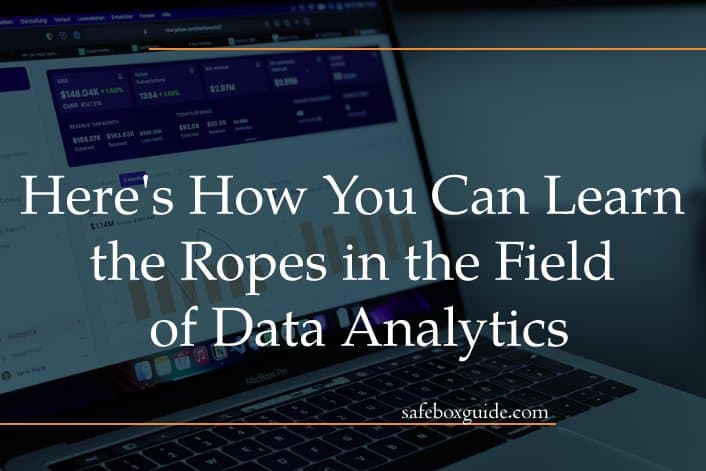What is the first thought which comes to your mind when you think of a career in data analytics? Exciting, right? Data analytics is a burgeoning field that promises lucrative career prospects. Businesses are constantly looking to extract valuable insights from the humongous amount of data they obtain daily. This has led to an increased demand for skilled professionals who can use the tools and techniques of data analytics to reveal hidden patterns, trends, and correlations in both structured and unstructured data.
According to a report, the demand for data analytics professionals will likely increase in the next couple of years. The field of data analysis is multi-disciplinary and requires skills that cut across domains like statistics, programming, business domain knowledge, and visual clientele.
The fascinating part about a career in data analytics is that you get to explore different roles and responsibilities depending on your area of interest. You can pick up any one of these:
Contents
Data analyst
The world is going digital, and businesses are along with it. There’s no doubt about the fact that every organization is in constant need of a data analyst. As a data analyst, you will be expected to collect and clean raw data, identify trends and patterns in the data, and use advanced analytics tools to arrive at insights. The job involves creating models, designing experiments, and developing algorithms to identify patterns and gain insights from the analyzed data sets.
This job is essential for businesses because it helps them understand consumer behavior and successfully market their products to the right target segments. You can become a data analyst by getting an undergraduate degree in computer science or information systems or learning the advanced tools and techniques of data analytics. However, a data analytics bootcamp is an ideal way to start your career as a data analyst. The benefits are beyond comparison – you get hands-on experience with various tools and techniques, you gain real-world industry proficiency, and lastly, it can very well land you your dream job.
Data architect
A data architect is a person who plans and designs how the enterprise’s data should be stored, accessed, and integrated. They are responsible for making the data available when and where it is needed – a function that becomes increasingly complex as the data keeps getting bigger. They also have to ensure that the database is scalable and fault-tolerant. To be able to set up a data architecture, you need to have a thorough understanding of the type of data being collected and the technologies used for managing it. This position also requires expert knowledge of the tools and techniques of data analytics. However, it is not mandatory to possess a 4-year degree. Instead, you can undergo data science training online and make a name for yourself.
Data scientist

Data scientists use their mathematics and statistics skills to analyze data, extract insights, and deliver actionable recommendations. Data scientists are also responsible for communicating their findings to others in a simple and easy-to-understand manner. This job is for people who are passionate about working with data and possess a strong understanding of the techniques and tools involved in analyzing it – programming languages such as Python, R, and SAS, machine learning algorithms, data visualization tools such as Tableau and D3.js, etc.
Suppose you wish to pursue this career path. In that case, you must first acquire a bachelor’s degree in statistics or mathematics or find a way to learn the tools and techniques on your own. Next, you must obtain hands-on experience working as a company’s data analyst or business analyst. This will allow you to understand the ins and outs of data analytics, which can be leveraged later on when you become a data scientist.
Data engineer
A data engineer is a person who creates data infrastructure to acquire, store and analyze data. Their job involves collecting vast amounts of data from multiple sources, creating databases to store it, and building models to analyze it. You can become a data engineer by gaining proficiency in the various tools, technologies, and languages to analyze data. Unlike data scientists, who are required to visualize their findings simply and understandably, data engineers can use technical information and complex diagrams to present the findings of their analysis. A solid foundation in computer science and database systems is an added advantage. However, acquiring real-world experience is the key to becoming a successful data engineer.
Business intelligence specialist
Business intelligence specialists make sense of the data that an organization collects. They use their skills in data analytics to discover patterns and trends, which they present using reports or dashboards. Their analysis also helps businesses to make informed decisions and take their business to the next level.
To become a successful BI specialist, you must acquire a bachelor’s degree in data sciences, statistics, or computer science. You must then gain proficiency in the tools and technologies involved in data analytics. This can be done by taking a specialization in data analytics online or obtaining a certificate in the same. In addition to technical skills, you must also have good communication and presentation skills so senior management can easily understand your findings.
Champion of data governance
Data governance ensures that a company’s data is secure, well-managed, and easily accessible. To pursue this career path, you must have a strong understanding of data security, privacy, and compliance. You must be able to provide recommendations on how to improve data governance policies and processes within an organization and provide leadership when it comes to implementing them. To succeed in this role, you must have a solid background in data’s legal and compliance aspects and proven experience in implementing effective data governance practices. Furthermore, you must possess good managerial and communication skills so that you can effectively collaborate with other members of the team.
It also never hurts to take supplemental programs like the best Excel course in Australia. Doing so should broaden your knowledge of data analytics.
Summary
The most common career paths in data analytics include data scientist, data engineer, business intelligence specialist, and data governance champion. To become successful in these roles, you must have a strong understanding of data analytics tools and technologies and the ability to communicate your findings effectively.
Additionally, it is important to have real-world experience working in the field of data analytics. Other important skills include data security and privacy, as well as compliance. Remember to stay up-to-date with the latest trends and data analytics technologies to continue to excel in your chosen career path.


